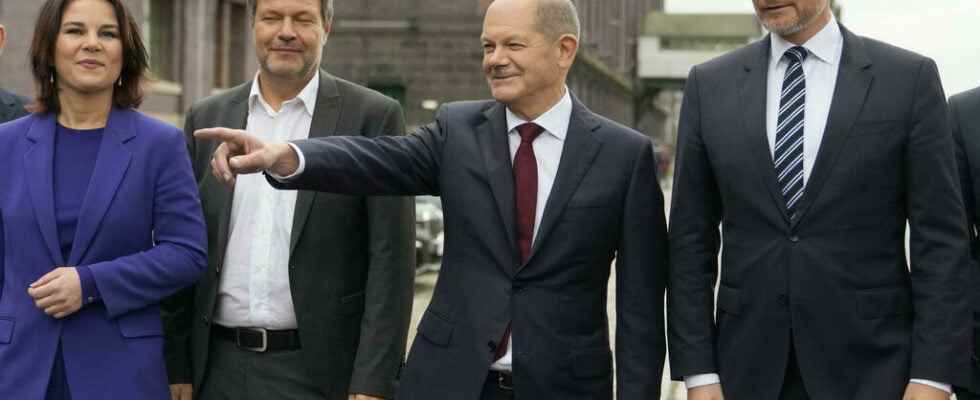The Merkel era is coming to an end. It is Wednesday December 8 that the successor of the German Chancellor, the Social Democrat Olaf Scholz, must be elected. A designation that is not in doubt after the future leaders have agreed on a coalition contract. The three member parties of this alliance must approve this text with votes this Saturday 4, Sunday 5 and Monday 6 December.
With our correspondent in Berlin, Pascal Thibaut
The suspense is not breathtaking. It is obvious that the three parties which wanted this coalition will approve the agreement concluded between the Social Democrats, the Greens and the Liberals. But the statements of certain actors and the quantified result of the various votes can shed light on the degree of frustration of each other.
For the first time in decades, a coalition with three and not two forces will rule Germany. It is obvious that only a small part of the program of each formation is included in the compromise found.
Among the social democratic or green youth movements, more radical than the rest of their organization, renouncements on rent control or social measures for some, on the environment for others, are bitter.
The Liberal Party is doing the best it can
Environmentalists seem to be the most dragging their feet. And the consultation of the 125,000 members, less disciplined than the delegates of a convention, could reveal some dissatisfaction if the end result leaves something to be desired for the management.
In a poll, the Germans questioned believe that the Liberal Party has done the best in the negotiations before the Social Democrats and environmentalists.
► See also: Germany: climate, cannabis, budgetary rigor on the program of an unprecedented coalition
